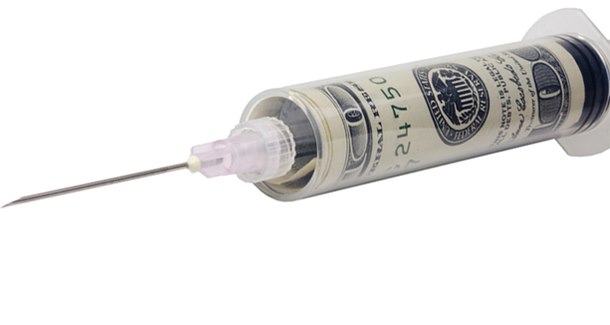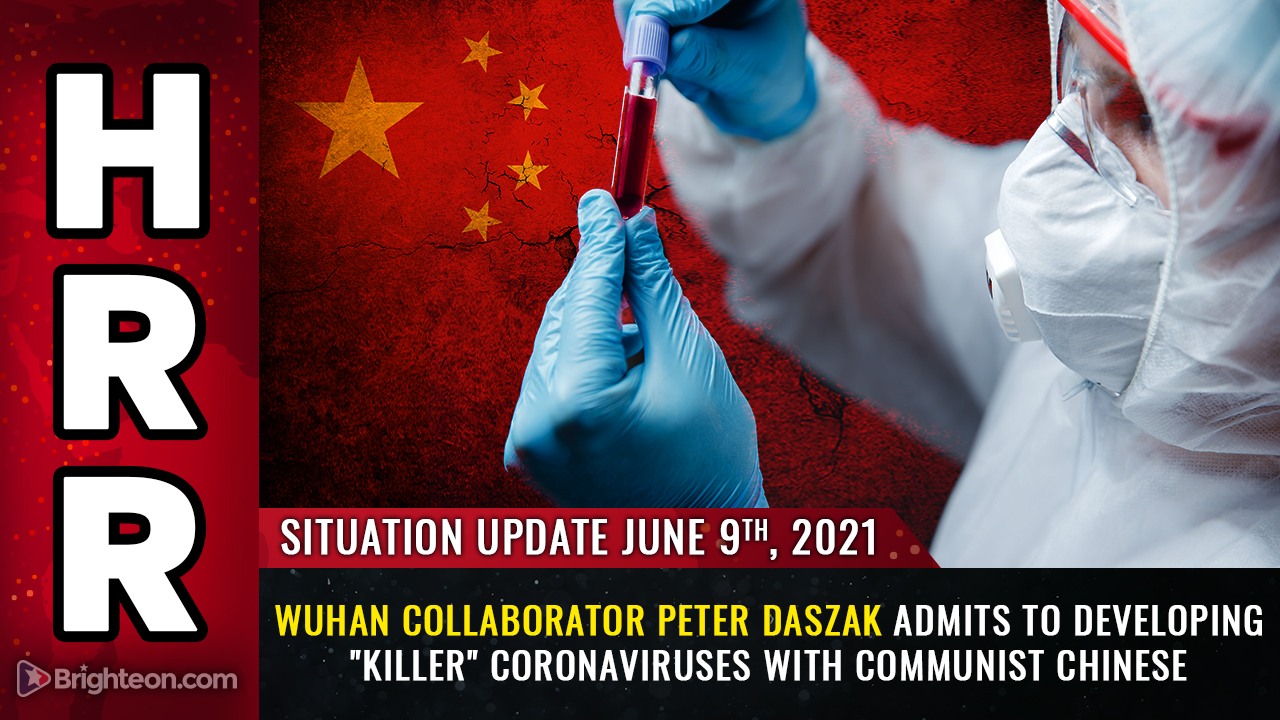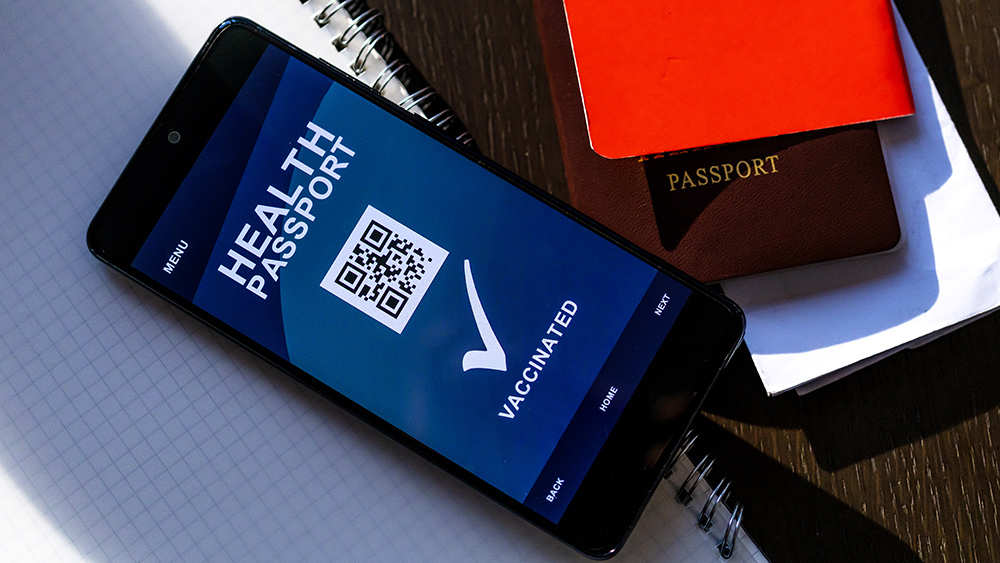Health official says China can’t open up like the US despite coronavirus vaccination program
06/09/2021 / By Ramon Tomey

A health official in China said the country cannot relax Wuhan coronavirus (COVID-19) restrictions despite its vaccination drive. This is because it has no way of examining the effectiveness of COVID-19 vaccines it has administered to its population. China’s situation comes in contrast to that of the U.S., which eased pandemic restrictions as vaccination drives rolled out.
Chinese Center for Disease Control and Prevention (China CDC) Deputy Director-General Feng Zijian said the country “has some unique difficulties” with its vaccination program. Because of these difficulties, China is unable to see the real-time effects of COVID-19 vaccines as infections and fatalities winded down. As of writing, China has administered more than 40 percent of its citizens with at least one COVID-19 vaccine dose.
“I don’t think we’ve got to that point [that] if we try to open [up] even when 60 or 80 percent of [the] population are vaccinated, it could still lead to a severe outbreak. It largely depends on the technical considerations, societal consensus and political concerns,” Feng said during a June 3 conference in the eastern Chinese city of Qingdao.
The China CDC director-general remarked that the country’s current goal is to vaccinate all citizens. He added, however: “We haven’t figured out or decided at what rate of vaccination can we adjust containment measures.” Furthermore, Feng did not elaborate on the “technical considerations” he mentioned.
Feng’s June 3 remarks implied that China will continue to close off its borders – in contrast to other countries opening up as their populations get inoculated. Despite initial vaccine hesitancy and supply shortages, China has now administered more than 700 million COVID-19 shots. This achievement bolstered the prediction that China’s 1.4 billion population will achieve herd immunity in a few months’ time.
The communist country has largely curbed new COVID-19 infections – with only one fatality related to the disease in more than a year. Based on Johns Hopkins University data, China currently has 103,176 COVID-19 cases and 4,846 fatalities.
The adverse effects linked to Chinese-made vaccines have now come to light
As of writing, it is not yet known if vaccines made in China can prevent COVID-19 transmission aside from serious sickness. But Chinese government adviser for COVID-19 Zhang Wenhong said existing vaccines used in the country “still have a long way to go” when it comes to their long-term effectiveness against the disease.
Zhang expressed hope that China “could conditionally resume travel with some countries,” but added that this would depend on the pace of vaccinations there. “If we do not vaccinate fast enough, we’d be unwilling to open up,” he said. Despite Zhang’s hopes, Chinese officials appear to have no intention of loosening strict measures – such as closed borders, strict quarantine for foreign arrivals and hard lockdowns for COVID-19 outbreaks that may pop up.
The CoronaVac vaccine manufactured by Beijing-based drug firm Sinovac Biotech is one of the vaccines being used on Chinese citizens. It has also been used in other countries such as Brazil and the Philippines. Early this month, the World Health Organization (WHO) validated it for emergency use and lauded its “easy storage requirements” that make it “very manageable and particularly suitable for low-resource settings.”
The WHO’s Strategic Advisory Group of Experts on Immunization (SAGE) also released its complete review of the Sinovac vaccine. It recommended the use of the two-dose CoronaVac on adults 18 years old and above. Based on efficacy results scrutinized by SAGE, it prevented symptomatic disease in 51 percent of vaccinated people and prevented severe COVID-19 and hospitalization in the entire vaccinated group. (Related: Shanghai district residents refuse to take Chinese-made coronavirus vaccine.)
But before the global health body’s analysis of the vaccine, it had been connected to a number of vaccine deaths in Hong Kong. The special administrative region approved the Sinovac vaccine candidate for use in COVID-19 inoculation drives there. The Epoch Times reported that three Hong Kong residents died days after they were vaccinated.
The first casualty in the city, a 63-year-old man, died on Feb. 28 – two days after vaccination. Six days later on March 6, a 55-year-old woman died – four days after she got the vaccine. A third resident, a 71-year-old man, also died four days after vaccination on March 8. The first two Hong Kongers who died reportedly had underlying conditions, while the third victim was in good health before receiving the vaccine. (Related: Hong Kong reports third post-vaccination fatality in ongoing Sinovac immunization drive.)
Head over to Vaccines.news to read more articles about COVID-19 vaccinations in China.
Sources include:
Tagged Under: Big Pharma, China, chinese vaccines, coronavirus restrictions, covid-19 pandemic, Hong Kong, mass vaccination, Sinovac, Vaccine deaths, vaccine effectiveness, Wuhan coronavirus
RECENT NEWS & ARTICLES
COPYRIGHT © 2017 IMMUNIZATION NEWS



















